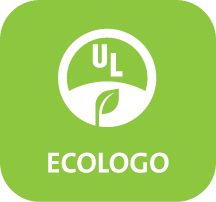Our Sustainability Healthy Babies Rely on a Healthy Planet
At Johnson's®, it's our job to build for a better tomorrow. That's why we're committed to ensuring that every product we provide is as safe and gentle for the planet as it is for your baby.

Our Certifications
To help make sure our products are the best they can be, we work with other leading organizations that evaluate baby products for safety and sustainability. Learn more about some of the organizations that have certified our products.
Sustainable Packaging
Johnson's Baby brand is making significant strides in enhancing its sustainability efforts, particularly through innovative packaging solutions. We are committed to making our packaging4 100% recyclable2 or refillable3 by 20251, and using more recycled materials to reduce fossil-based sources and single-use plastics.
We’ve integrated post-consumer recycled plastic (PCR) into our bottles in several markets including, LATAM, EU, and Asia, and continue to roll-out globally.
We’ve launched recycle-ready (single material) tubes in North America, EU and Asia.
We continue expanding our refill offerings around the world and enabling bottle reuse, including new refill pouches that are designed for recycling.
We aim to reduce our virgin plastic5 by 50% by 2030 (compared to a 2020 baseline). Johnson’s Baby will continue transitioning our packaging to more sustainable solutions, ensuring we meet consumer expectations, drive our Healthy Lives Mission forward: to advance the wellbeing of people and the planet.
1. We aim to meet the goal by end of fiscal year and publish the year after.
2. Recyclable, also defined as recycle-ready is when packaging is designed for collection, sorting, and recycling using end-of-life processes, but where collection, sorting and recycling infrastructure may not yet be in place for the packaging to actually be recycled. Best practices of “designing for recyclability” guidance for plastic-based packaging include the Association of Plastics Recyclers in the United States. Note: “Designed for recycling,” “designed for recyclability,” and “recycling ready” are also used interchangeably and reflect the same meaning.
3. Kenvue defines refillable or reusable packaging as packaging that is designed for either the business or the consumer to put the same type of purchased product back into the original packaging, is designed to be returnable and/or refillable, and accomplishes a minimum number of reuses by being part of a system that enables reuse.
4. Packaging for direct purchases may not include all externally manufactured products. Total weight of plastics packaging is calculated utilizing 2024 Business Plan volume and is not trued up to actual sales. Manual adjustments of <10% were made to 2024 Business Plan volume based on SME judgment to remove materials not assumed to contain plastics.
5. Virgin plastic means newly manufactured resin produced from petrochemical feedstock used as the raw material for the manufacture of plastic products and which has never been used or processed before.

